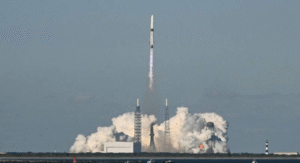Pakistan’s Foreign Reserves Rise to $19.81 Billion Despite Debt Repayments
Pakistan’s total liquid foreign reserves have recorded a modest increase, reaching $19,810.4 million as of October 3, 2025, despite the execution of major external debt repayments, according to the latest data released by the State Bank of Pakistan (SBP).
In its weekly report, the central bank confirmed that SBP’s reserves rose by $20 million, bringing the total to $14,420.1 million. The increase comes even as the country fulfilled key international debt obligations, including the repayment of a $500 million Pakistan Sovereign Eurobond.
“During the week ended on 3 October 2025, SBP’s FX reserves increased by US$20 million to US$14,420.1 million,” the statement said, adding that all external payments were completed as scheduled.
Meanwhile, the foreign reserves held by commercial banks registered a minor decline of $6 million, standing at $5,390.3 million during the same period. This brought the total liquid reserves of the country to $19,810.4 million, compared to $19,796.7 million recorded in the previous week ending September 26, 2025.
The week-on-week increase, though moderate, signals improved financial management and foreign inflow stability amid a challenging global economic environment. Analysts suggest that consistent inflows from remittances, exports, and multilateral support have helped offset the impact of debt repayments.
In comparison, during the previous reporting week, the SBP held $14,400.4 million, while commercial banks collectively maintained $5,396.3 million in reserves. The data reflects a steady trend in Pakistan’s external account management, even as the country continues to meet its international financial commitments.
The increase in reserves offers a degree of reassurance for Pakistan’s financial markets, strengthening confidence in the central bank’s ability to sustain external liquidity while servicing obligations. With debt repayments continuing through the fiscal year, maintaining and expanding foreign exchange reserves remains a critical priority for economic stability.













